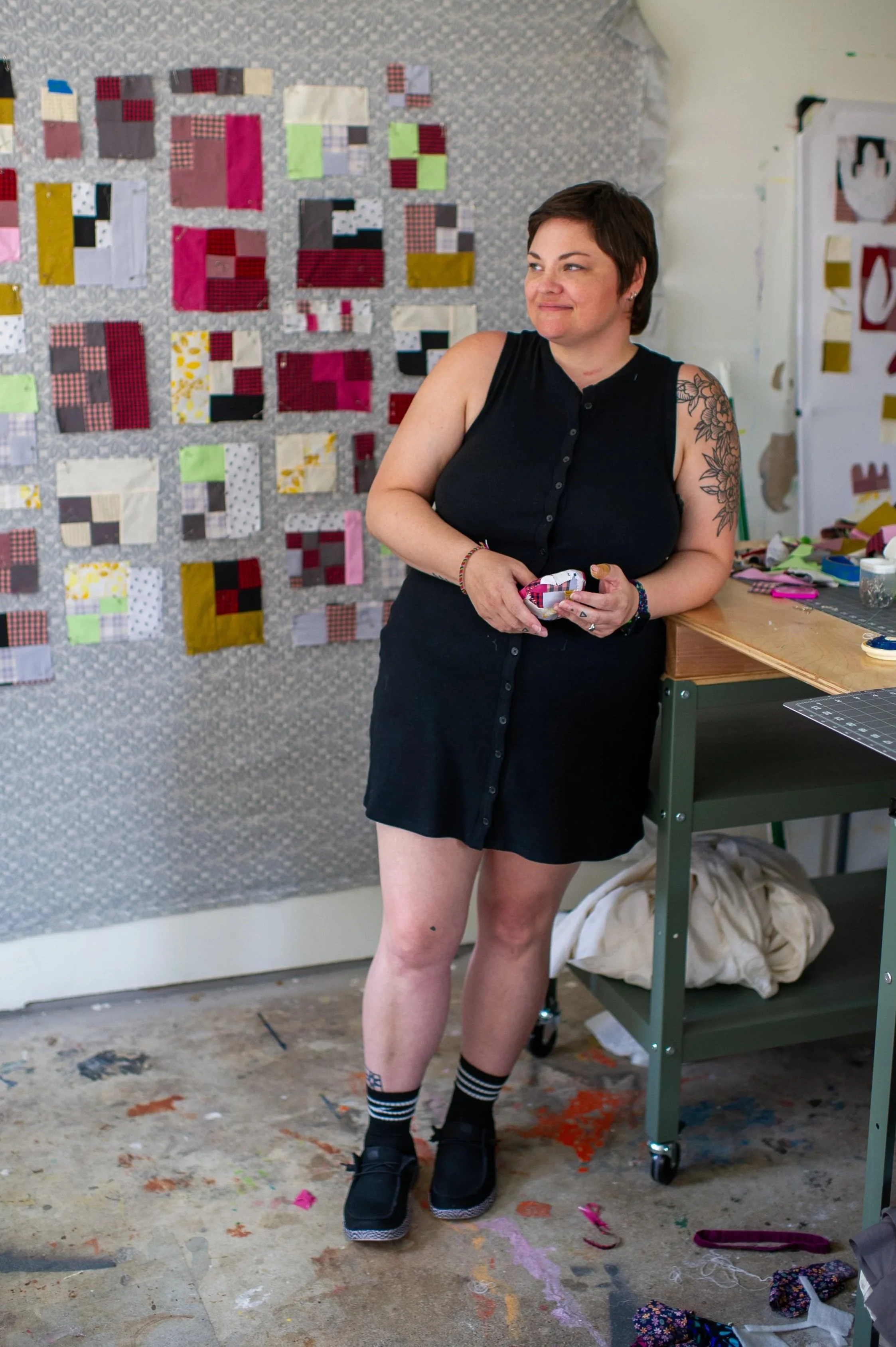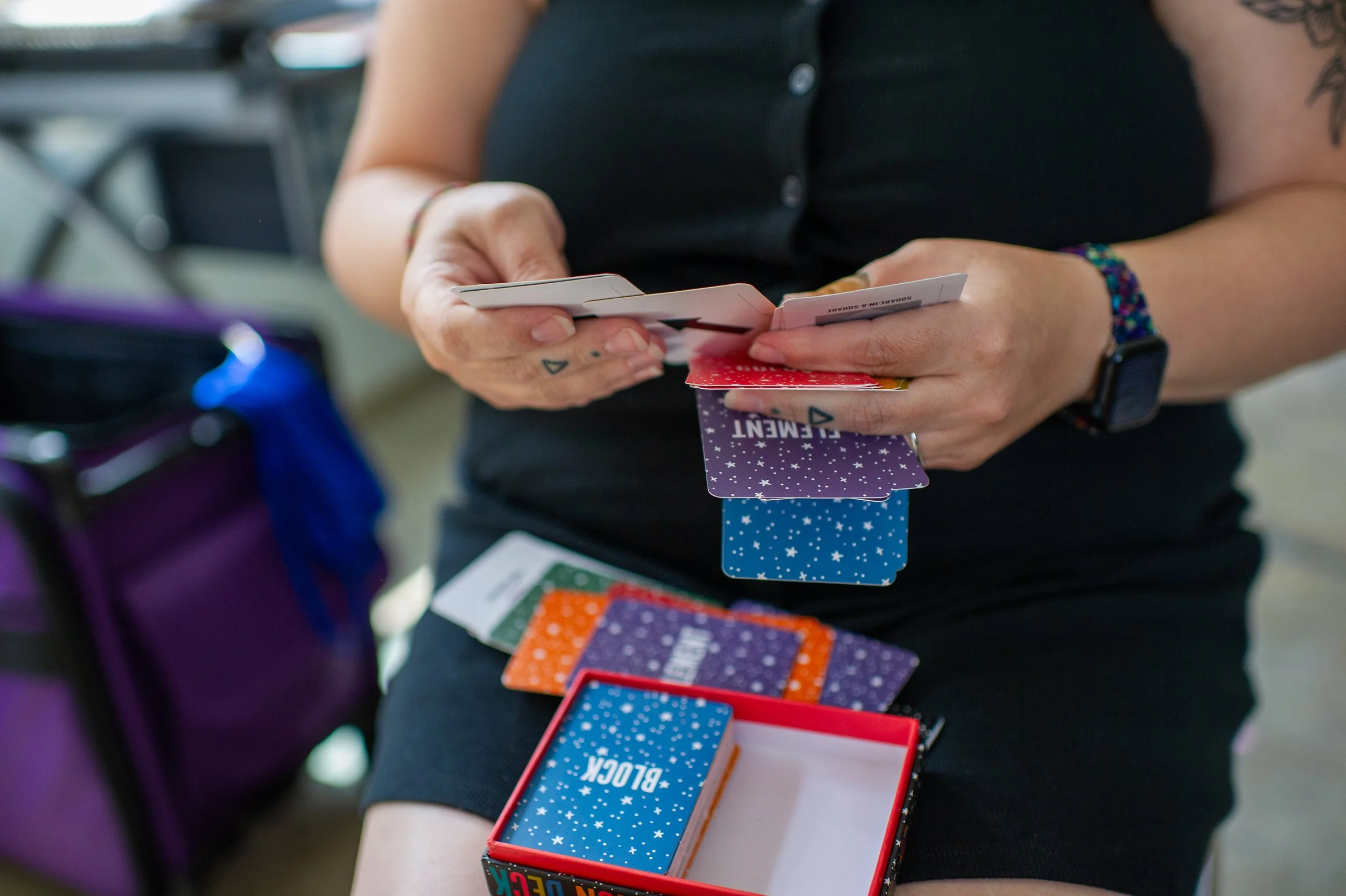About Me
Teresa Fiehn Millies is a conceptual quilt artist and author based in Aurora, Illinois. She works in primarily in the layers of physical texture and personal nostalgia inherent in secondhand materials. Her work explores themes of identity, transformation, creative process and practise. Her process centers around the possibility of creativity in limits.
She is the author of The Quilter’s Inspiration Deck (C&T Publishing), and her quilts have been exhibited at QuiltCon 2024 and AQS QuiltWeek in Paducah 2023. Teresa also works as a quilting instructor at the College of DuPage in Warrenville, Illinois, and is passionate about teaching how to trust the process.
Photo By Kaylan Buteyn
Artist Statement
Teaching Philosophy
I approach teaching as an extension of my studio practice. I believe the work is not just about making an object, but about engaging in inquiry: listening to the materials, noticing shifts in attention, and discovering meaning through practice. I want my students to experience quilting as both skill building and exploration.
I emphasize resourcefulness and experimentation, encouraging students to work with what they have, to embrace imperfection, and to allow mistakes to guide them. Using traditional techniques as a foundation, I invite students to play; reinterpret patterns, combine unexpected fabrics, and uncover their own voice in the process.
Ultimately, I teach to help students trust themselves. My role is not to hand them answers, but to create conditions for insight and to help them recognize that their process, their choices, and their presence in the work are what matter most.
I am a conceptual process and transformation artist who uses quilting as a form of inquiry into the sacred and esoteric meanings embedded in daily life. For me, the process is the concept, and the concept is the process. My work is centered on self-exploration, where creating becomes a meditative act—bringing what lies beneath the surface into the light to be witnessed and transformed.
I work with secondhand fabric and thrifted materials, grounding my designs in traditional quilt patterns and motifs. Each stitch connects to a lineage of women’s and queer quilting histories—stories of skill, resourcefulness, and activism that I seek to honor in my practice.
Through my work, I explore themes of identity and belonging, always seeking the freedom to create on my own terms. I want my quilts to feel both familiar and dissonant, stirring what rests just below awareness. I make in order to understand what I do not yet have words for, and to invite that same recognition in others. At its core, my work reflects a search for universal truths about selfhood, mortality, and transformation.





